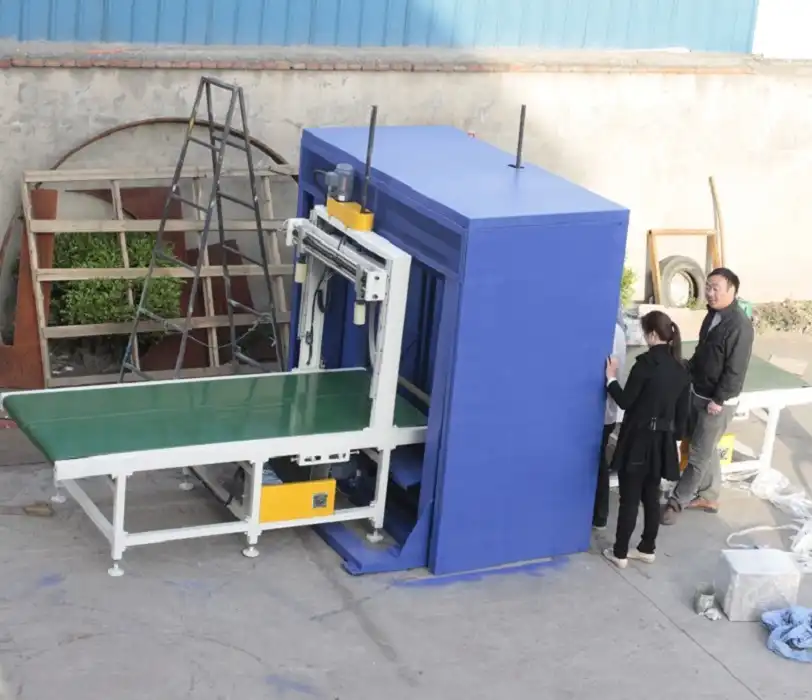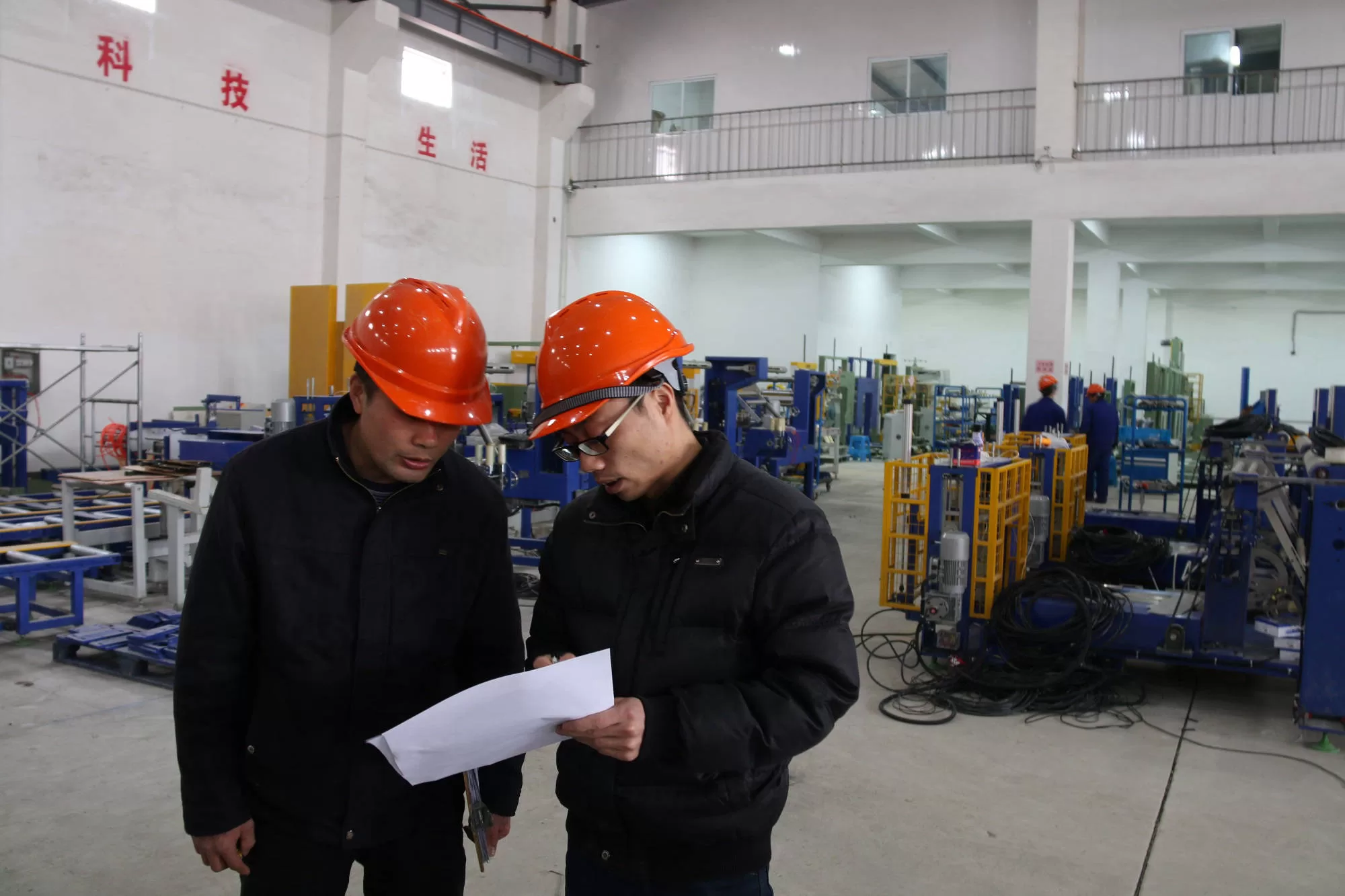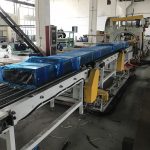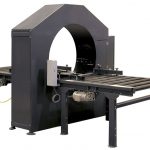Negotiation and Contract: Securing the Best Deal for an Orbital Stretch Wrapper

Investing in an orbital stretch wrapper can significantly enhance your packaging efficiency, product protection, and overall operational performance. However, securing the best deal for such a critical piece of machinery requires careful negotiation and understanding of contract terms. Whether you’re looking for a cost-effective solution or seeking advanced features, negotiating effectively and ensuring the contract covers your needs is essential. This guide will help you navigate the process, from initial discussions to signing a favorable contract.
1. Preparation: Understanding Your Packaging Needs
Before entering into any negotiation, it’s crucial to have a thorough understanding of your specific packaging needs. Knowing the requirements of your production line will provide clarity and leverage during negotiations. Here are some important factors to assess:
1.1 Machine Capacity and Features
Identify the key features you need in an orbital stretch wrapper. Do you require a fully automated system with advanced control features, or will a semi-automatic model suffice? Consider the machine’s capacity, the size of the products it can wrap, and its compatibility with your existing packaging line.
1.2 Budget Constraints
Having a clear budget in mind will guide your negotiation. It’s essential to differentiate between necessary features and those that are optional to avoid overspending. However, keep in mind that the total cost of ownership (TCO) includes not just the upfront purchase price but also maintenance, operational costs, and future upgrades.
1.3 Long-Term Value
Focus on long-term value rather than just the lowest price. A machine that’s initially more expensive but offers better durability, film efficiency, and lower maintenance costs can provide better value in the long run.
2. Researching and Shortlisting Suppliers
The next step is to research suppliers and create a shortlist of those that align with your business goals. The quality of the supplier can be as important as the machine itself, especially regarding after-sales support, warranties, and service contracts.
2.1 Supplier Reputation
Evaluate each supplier’s reputation by reviewing case studies, customer testimonials, and online reviews. Suppliers with a proven track record of delivering high-quality equipment and excellent after-sales service are more likely to offer a beneficial long-term partnership.
2.2 Product Range and Customization Options
Suppliers that offer a broad range of machines and customization options are more likely to meet your specific needs. Whether it’s adjusting the ring size, integrating advanced automation features, or offering specialized film types, a flexible supplier is an asset.
2.3 After-Sales Support
A comprehensive after-sales support package is crucial for preventing downtime and maintaining the machine’s performance. Ensure the supplier provides adequate technical support, service contracts, and access to replacement parts.
3. Key Negotiation Strategies
Once you’ve shortlisted potential suppliers, it’s time to start negotiating. The goal of the negotiation is to secure the best deal, which doesn’t necessarily mean the lowest price but the most favorable combination of price, features, and long-term support.
3.1 Leverage Multiple Quotes
One of the best ways to gain negotiating power is by requesting multiple quotes from different suppliers. Comparing prices, features, and service packages allows you to benchmark offers and use them as leverage during negotiations.
3.2 Negotiate Beyond Price
While price is an important factor, don’t focus solely on it. You can negotiate other elements of the contract, including extended warranties, free installation, discounted maintenance contracts, or future upgrade options. These additional benefits can add significant value to the deal.
3.3 Consider Bundled Packages
Some suppliers offer bundled packages, which include the machine, spare parts, service contracts, and training for operators. Bundled deals often come at a reduced cost compared to purchasing these elements separately, and they ensure that all your needs are covered from the start.
3.4 Negotiate Payment Terms
In addition to negotiating the overall price, you can negotiate more favorable payment terms. For example, requesting staggered payments or extended payment plans can ease the financial burden. Some suppliers may offer financing options to help spread out the costs over time.

Get Your Best Solution !
4. Contract Elements to Pay Attention To
Once the negotiation phase is complete, it’s time to finalize the contract. Carefully reviewing the terms of the contract will ensure that there are no hidden surprises and that both parties are clear on their obligations. Here are the key elements to focus on:
4.1 Detailed Product Specifications
The contract should include a clear outline of the machine specifications, such as the model, size, and features you’ve agreed upon. This ensures that the product delivered matches your expectations and requirements.
4.2 Warranty Terms
Warranties provide peace of mind, protecting you from defects or malfunctions in the machine. Ensure that the contract specifies the warranty period, what it covers (parts, labor, etc.), and any exclusions or conditions.
4.3 Maintenance and Service Contracts
Service contracts are an essential part of your deal, as they ensure that the machine remains operational without causing costly downtime. The contract should clearly define the scope of maintenance services, the frequency of maintenance visits, and the terms of emergency support.
4.4 Delivery and Installation Timelines
Make sure the contract includes a specific timeline for delivery and installation. Delays in these areas can disrupt your production schedule, so it’s important to have clarity on when the machine will be fully operational.
4.5 Training and Support
If the purchase includes operator training, ensure that this is explicitly stated in the contract. Training is essential for ensuring your team can operate the machine effectively and perform basic troubleshooting if necessary.
5. Pitfalls to Avoid During Negotiations
While negotiating the best deal for an orbital stretch wrapper, be aware of potential pitfalls that could lead to future problems. Here are a few common mistakes to avoid:
5.1 Focusing Only on the Lowest Price
A low price can sometimes come at the cost of reduced quality or limited support. Focus on the overall value, considering features, service, and long-term reliability.
5.2 Overlooking Total Cost of Ownership (TCO)
The initial purchase price is only one aspect of the total investment. Consider TCO, which includes film usage, energy consumption, maintenance, and potential downtime costs.
5.3 Neglecting Customization Needs
Ensure that the machine you choose can be customized to fit your specific production line. It’s tempting to save money by choosing a standard model, but investing in a machine that fully meets your needs will pay off in the long run.
6. Long-Term Supplier Relationships
Building a long-term relationship with your supplier can be beneficial for both parties. Suppliers who view your business as a long-term partner are more likely to offer favorable terms and provide ongoing support. Here’s how to foster that relationship:
6.1 Open Communication
Maintaining open and honest communication with your supplier is key to building trust. Keep them informed about your packaging needs and any challenges you face, so they can provide timely solutions.
6.2 Regular Maintenance and Feedback
Suppliers appreciate feedback on how their machines are performing. By engaging in regular feedback and scheduling maintenance visits, you’ll not only keep your machine in top condition but also strengthen your relationship with the supplier.
7. Conclusion
Securing the best deal for an orbital stretch wrapper involves thorough preparation, careful negotiation, and clear understanding of contract terms. By researching suppliers, comparing offers, and negotiating beyond price, you can ensure you’re making an informed decision that benefits your business in the long run. Remember to focus on total value, including after-sales support, customization options, and long-term costs, to ensure you get the most from your investment.
A strong supplier relationship and a well-negotiated contract can lead to smoother operations, reduced downtime, and cost savings over time. Make sure to prioritize both the quality of the machine and the support you’ll receive, and you’ll be well on your way to a successful, long-term partnership.

Get Your Best Solution !









